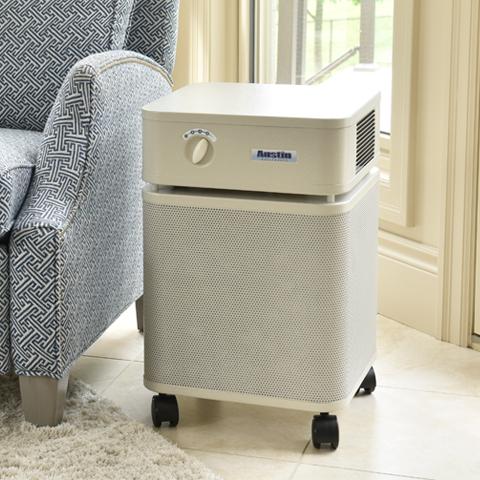What is that smell?????
Flatulence, breaking wind, farting, ripping one, and passing gas…taboo not only to do in the presence of others but also to openly discuss.
We are all friends here, right? So we can sit down over a cup of digestive tea and chat about all things intestinal gas related. We have no secrets and certainly no shame!
First, let’s define intestinal gas.
Gas is NOT the act of breaking wind. Gas is actually a natural byproduct of the digestive process, comprised of nitrogen, hydrogen, carbon dioxide, methane and oxygen. Yep, it really is that simple.
What are some symptoms of intestinal gas?
The most common symptoms of intestinal gas are flatulence, abdominal bloating, abdominal pain, and belching. However, not everyone experiences these symptoms. The type and degree of symptoms probably depends on how much gas the body produces, how many fatty acids the body absorbs, and a person’s sensitivity to gas in the large intestine.
Let’s look at each symptom of intestinal gas in more detail.
Flatulence – A common form of gas is flatulence. (In case you were unaware, this is when gas is released out of your hindquarter opening). Most people do not realize that passing gas 14 to 23 times a day is normal. Too much intestinal gas may be the result of carbohydrate malabsorption.
Abdominal Bloating – Many people believe that too much gas causes abdominal bloating. However, people who complain of bloating from gas often have normal amounts and distribution of gas. They may just be unusually aware of intestinal gas in the digestive tract.
Bloating is usually the result of an intestinal disorder. These disorders may give a sensation of bloating because of increased sensitivity to gas.
Eating a lot of fatty food can delay stomach emptying and cause bloating and discomfort, but not necessarily too much gas.
Abdominal Pain and Discomfort – Some people have pain when intestinal gas is present in the intestine, more specifically when it becomes trapped in bends in the colon, which occur naturally in the area under the liver (upper to mid-right part of the abdomen), and in the area under the spleen (upper to mid left part of the abdomen). When pain is on the left side of the colon, it can be confused with heart disease, which sometimes causes abdominal pain. When the pain is on the right side of the colon, it may mimic gallstones or appendicitis.
Belching – An occasional belch during or after meals is normal and releases gas when the stomach is full of food. However, people who belch frequently may be swallowing too much air and releasing it before the air enters the stomach.
Sometimes a person with chronic belching may have an upper gastrointestinal (GI) disorder, such as peptic ulcer disease, gastroesophageal reflux disease (GERD), or gastroparesis, also called delayed gastric emptying. Sometimes people believe that swallowing air and releasing it will relieve the discomfort of these disorders, and they may intentionally or unintentionally develop a habit of belching to relieve discomfort.

What Causes Gas?
13 things actually! Let’s take a look.
1. Swallowed Air – You swallow air every time you eat or drink. You may also swallow air when you’re nervous, eat too fast, chew gum, suck on a food item, or drink through a straw. Some of that air finds its way into your lower digestive tract. If swallowed air is not burped up, it passes through the digestive tract and is released in the form of a flatulent.
2. Foods And Beverages – The amount of intestinal gas that different foods cause varies from person to person. The foods that produce gas with odor may be different for every person too. Dairy, gluten, sugars (especially fructose), and starches are often to worst offenders.
3. Poor Food Combinations – Eating starches (wheat, potatoes, corn, oats, barley) and proteins (nuts, beans, meats, grains) together can result in impaired digestion. Food will decompose in the stomach, which leads to gas, bloating, and constipation.
4. Food Preparation Methods – Cooked food is easiest for our bodies to digest. However, avoid frequently deep frying food and choose to roast, bake, broil, or steam instead. Though beans are often associated with flatulence, soaking them before cooking removes their natural, hard-to-digest coating.
5. Artificial Additives – It’s also possible that your system can’t tolerate artificial sweeteners, such as sorbitol and mannitol, found in some sugar-free foods, gums and candies. Many healthy people develop intestinal gas and diarrhea when they consume these sweeteners.
6. Lack of necessary enzymes (complex proteins) that our bodies need to absorb and digest foods. I have to take these digestive enzymes with each meal.
7. Dehydration – Adequate amounts of water are necessary to help food pass through our guts – without it, food will sit and ferment in our digestive tract.
8. Constipation – This typically causes bloating (trapped gas) with a failure to release said gas.
9. Medicines Or Nutritional Supplements – Both prescription and nonprescription medicines, as well as dietary supplements, can cause bloating and intestinal gas as side effects. In some cases of excess gas, antibiotic use may be a factor because antibiotics disrupt the normal bacterial flora in your bowel.
10. Laxatives – Excessive use of laxatives also may contribute to problems with excess intestinal gas.
11. Another Health Condition – Excess gas may be a symptom of a more serious condition. Examples include diverticulitis or an inflammatory bowel disease, such as ulcerative colitis or Crohn’s disease.
12. Changes In Hormone Levels – It is common for women to have bloating and intestinal gas right before their periods because their bodies retain fluid. Pregnant and menopausal women may also experience an increased level of gas.
13. Stress – Emotional tension or anxiety affects our bodies in many different ways, including gas and bloating.
What are a few natural ways to prevent intestinal gas and get relief during bouts of it?
Coconut Oil is full of essential fatty acids and healthy saturated fat which may ease digestive problems. Coconut oil also safely pulls toxins from storage sites which can create gas and bloating. Take one tablespoons at the onset of symptoms in addition to taking a daily maintenance dose.
Dietary supplements/enzymes can help you process your food more effectively when taken with each meal.
Fermented foods and beverages offer a whole host of gut friendly properties including overall gut health support.
Taking a daily probiotic will only improve your gut lining thus reducing gas. The higher the quality, the better.
Papaya, peppermint, and fennel seeds can be used to calm an upset stomach. After you finish eating, have these in their whole form or in special products like this digestive tea.
Essential Oils such as Peppermint, Ginger, Lemongrass, or Cinnamon can all help alleviate digestive upset, gas, and bloating when taken internally or used to massage the abdomen. This digestive blend is wonderful!
Take smaller bites, chew foods thoroughly, and consider eating smaller, more frequent meals to give your stomach time to correctly process out the food.
Poop Smarter with the Squatty Potty! Don’t let poop linger in your system. Get it out! The most effective way to poop is in a squat or semi-squat position. The Squatty Potty gets you right where you need to be for the most effective elimination.
To release pent up gas, lie on your back with your legs elevated substantially. The more of an angle you can get into, the quicker you will start passing that intestinal gas out!
To combat the odor of gas, if you have really foul smelling flatulence, consider using a device to deodorize gas, such as underwear made from carbon fiber. Charcoal lined cushions or pads are also available.

Sorry, I just could not resist sharing those puppies!










Anonymous says
I thought you aren’t supposed to have any flatulence if you are in optimal health. I thought it was a symptom of you having trouble digesting something you ate…
I guess it’s normal to be in poor health?
Anonymous says
Quitting gluten got rid of my reflux and the constant burping that came with it. Since going low-carb/primal, I rarely have gas at all.
Jennifer Saleem says
@Anonymous Swallowing excessive air can also cause gas build up and in a society where we talk a lot, we do swallow air. So even in optimal health, you will pass gas. And remember, no body is in perfect health. The air we breathe places a burden on our health.
Peter says
If you want to discover how you can cure your flatulence problems within two days without having to visit the doctor then you need to see this new website.
This is an all natural alternative to medication. It’s what doctors and the drug companies have been hiding for years.
Just check out some of the success stories on the site below:
http://perkmur.flatulence.hop.clickbank.net
Regards
Peter Kagwi
Charise @ I Thought I Knew Mama says
Excellent info! It’s great to know coconut oil has yet another use!
Christine Powell says
Loved this post! I lol at the deodorizing pads, wow! Food combining is a biggie, I found that out myself 🙂
melissa says
Subtle butt? The name and the product both crack me up, but it’s seriously awesome to know those exist.
Cutting out fluids during meals has been a biggie for me. People always seem to think I’m nuts for not having water with dinner, but really – it’s better if I don’t!
Angela says
This is awesome! I have to say that I have been making homemade doggie treats using coconut oil, now that I think about it there have been less stinky nights while he lays next to the bed…thank you!
Amy Willa says
Oh, LMAO – the “Subtle Butt” pads crack me up! This was a very informative post. Everybody farts. . . lol
Joella @ Fine and Fair says
Is there anything coconut oil CAN’T do? 😉